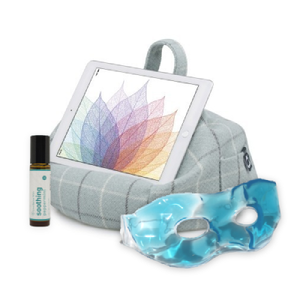Foggy Brain
Managing Foggy Brain During the Menopause
Many women experience “foggy brain” or a lack of mental clarity during the menopause. Some women go as far as to describe their symptoms as being “similar to Alzheimer’s.” Forgetting key details, plans, and facts can be distressing, but it’s a normal part of the menopause experience. If you’re feeling frustrated about your lack of mental acuity, this guide will help you to sort out some strategies.
This guide covers:
- Confusion and forgetfulness
- “Brain Fog”
- Mood Swings

Why can’t I seem to remember anything?
Oestrogen affects the way that neurotransmitters work in your brain. Your ability to remember and recall information is dependent upon these systems working effectively. When your oestrogen levels fluctuate, you may find that you lose track of details and feel as though you have little ability to remember anything.
- Be patient: Studies are showing that brain fog is definitely a symptom of the menopause. You are not going crazy or losing your mind! In fact, many women find that although they go through distinct periods of forgetfulness, their experiences are just that; periods. The memory loss doesn't last forever, and as your symptoms ebb and flow, you'll find your regular brain function returns to normal.
- Get active: Keeping your blood pumping and your body strong can support your mind and allow it to work as effectively as possible. See our guide for managing diet and weight for additional tips.

- Play games: Brain games and puzzles can help to keep your mind sharp and active. Pocket Posh puzzles are a perfect way to keep your mind working, and strengthening your mental muscles can help to support memory and good brain function. Crosswords, Suduko games, and mental math are all fun activities that will help you to relax and stay mentally sharp at the same time.
- Keep lists: It sounds silly, but keeping a notebook and pen handy - or writing down key dates in a diary or on your phone - is a subtle and effective way to stay on top of daily life. Stress and the pressure to remember hundreds of details at once can amplify the struggles you're having. Take the pressure off, and write things down.
Is there any way I can feel less foggy?
That muddled, cloudy mental feeling is no fun. But if you're experiencing it, you're not alone.

- Try meditation: Meditation is the act of focusing the attention inward and paying attention to small physical sensations and the breath. Doing this calms the heart and mind, and allows you to minimise stress. Many people find that regular meditation helps them to feel calmer and more mentally astute, too. You can discover more about meditation using books or CDs, or you can seek out classes and lectures if you are interested in learning about it further.
How will healthy eating help me to manage my symptoms?
- Your brain relies on healthy fats and foods to function properly. Check out our guide to diet and weight during menopause for more advice about healthy eating.





